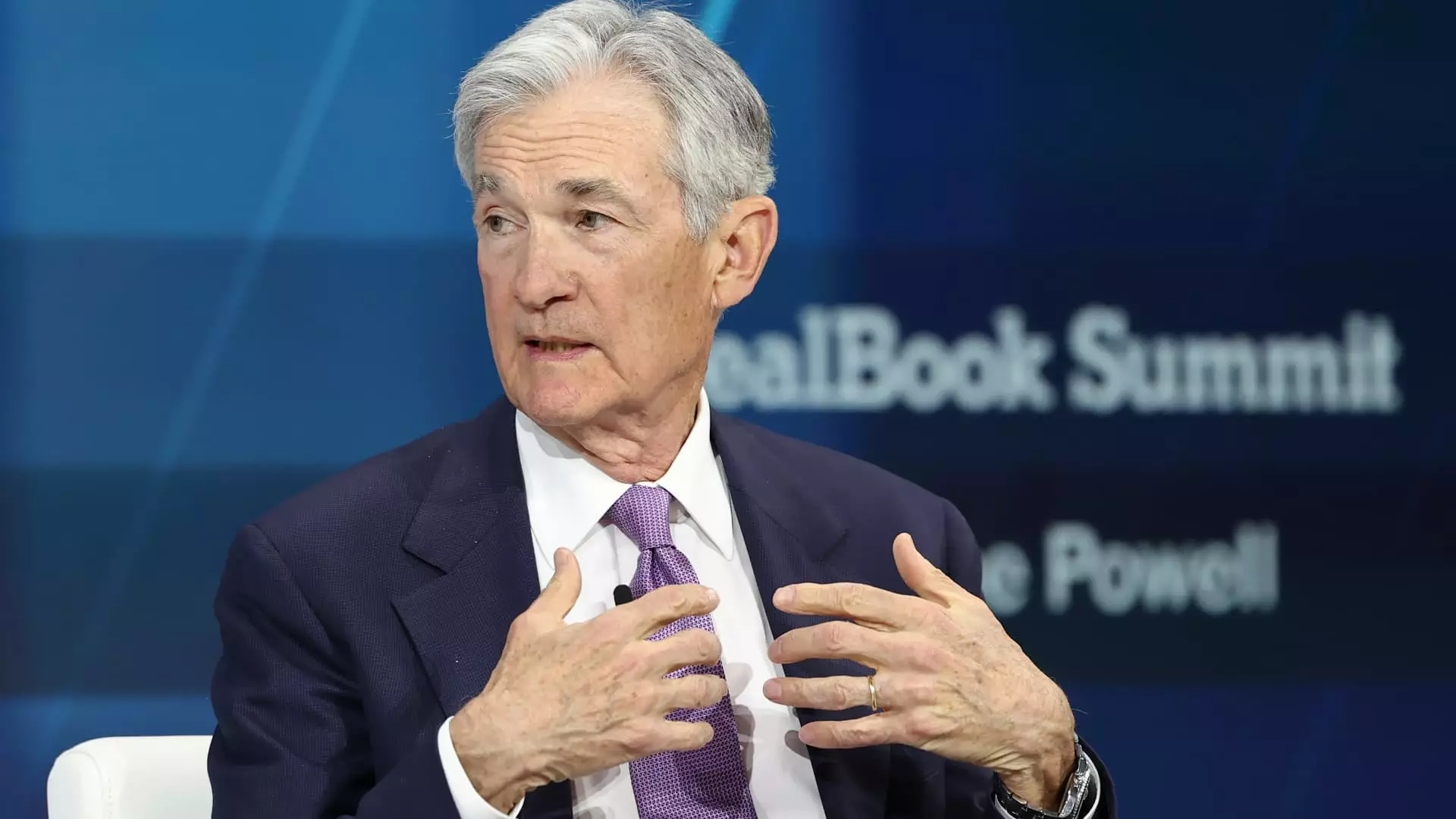The dynamic world of cryptocurrencies is influenced by an array of factors, but some catalysts emerge from unexpected avenues. One such recent driver of Bitcoin’s surge in the financial markets came from an unlikely figure: Jerome Powell, the Chair of the Federal Reserve. His remarks regarding Bitcoin not only provided insightful commentary but also arguably legitimized the cryptocurrency to a broader audience, prompting a noteworthy market response. This article delves into the implications of Powell’s statements, the relationship between Bitcoin and traditional assets like gold, and the potential for further market volatility.
During his address at the New York Times’ DealBook Summit, Powell made it clear that while he does not possess any cryptocurrency, he recognizes its role within the financial landscape. He asserted that Bitcoin should be classified more as a speculative asset akin to gold rather than a viable competitor for conventional currencies like the U.S. dollar. His assertion that Bitcoin serves a different purpose indicates a divided market mentality — one that categorizes cryptocurrencies distinctly from traditional fiat money.
Powell’s comments also hinted at the restrictions the Federal Reserve faces in regulating such decentralized financial instruments. By suggesting that Bitcoin isn’t a direct rival to the dollar, Powell opened the door to a narrative that resonates with investors seeking alternative financial avenues. The connection he drew between Bitcoin and gold positions the cryptocurrency as a new kind of asset class, potentially leading to increased interest and investment.
The immediate aftermath of Powell’s remarks saw Bitcoin spike by 4%, pushing it above the $103,000 mark. Such an abrupt increase illustrates the influence that federal figures can have on market sentiments, validating the idea that investor psychology plays a crucial role in trading dynamics. Market strategist Joel Kruger referred to this reaction as a “significant development,” emphasizing that Powell’s endorsement offers Bitcoin an elevated stature among traditional investment assets.
Kruger also pointed out that despite Bitcoin’s impressive rise, it still has substantial room for growth when compared to gold, currently valued at approximately ten times more than Bitcoin. This insight reflects optimism among Bitcoin advocates, as its continual growth emphasizes the cryptocurrency’s potential to establish itself firmly in the global market narrative.
It is essential to situate Powell’s comments within the broader political context. Around the same time, President-Elect Donald Trump’s announcement regarding his intent to nominate Paul Atkins — a known supporter of cryptocurrencies — as the chair of the Securities and Exchange Commission (SEC) further spotlighted the shifting regulatory environment for crypto. The SEC has previously been characterized by its cautious approach, particularly under Gary Gensler, who has expressed skepticism towards the crypto market. The prospect of a more accommodating regulatory stance sparked excitement and optimism among investors.
Fluctuations in Bitcoin’s price can often be traced back to external socio-political factors, and the convergence of Powell’s comments alongside significant regulatory nominations encapsulates this relationship. The crypto market’s reaction to these influences reaffirms its volatility and the intertwining of finance with broader societal changes.
As Bitcoin finds its footing in this new narrative, the question about its long-term viability remains. Can Bitcoin transition from a speculative financial tool into a staple of investment portfolios? Powell’s categorization as a counterpart to gold may indeed set a precedent for digital assets moving forward. Investors and policymakers alike will have to consider whether Bitcoin can adopt characteristics of stability amidst its historically volatile nature.
Jerome Powell’s recent statements echo a significant shift in how Bitcoin is perceived within the financial markets. By framing it in terms of gold rather than direct competition against currencies like the dollar, Powell inadvertently facilitated a growing legitimacy for Bitcoin, marrying technology with investment opportunity. Moving forward, the cryptocurrency’s ability to sustain growth amidst changing political landscapes and market dynamics will be critical in determining its role in investors’ portfolios. The interplay of these elements signifies an exciting yet unpredictable journey for Bitcoin as it navigates the complex financial terrain of the 21st century.

